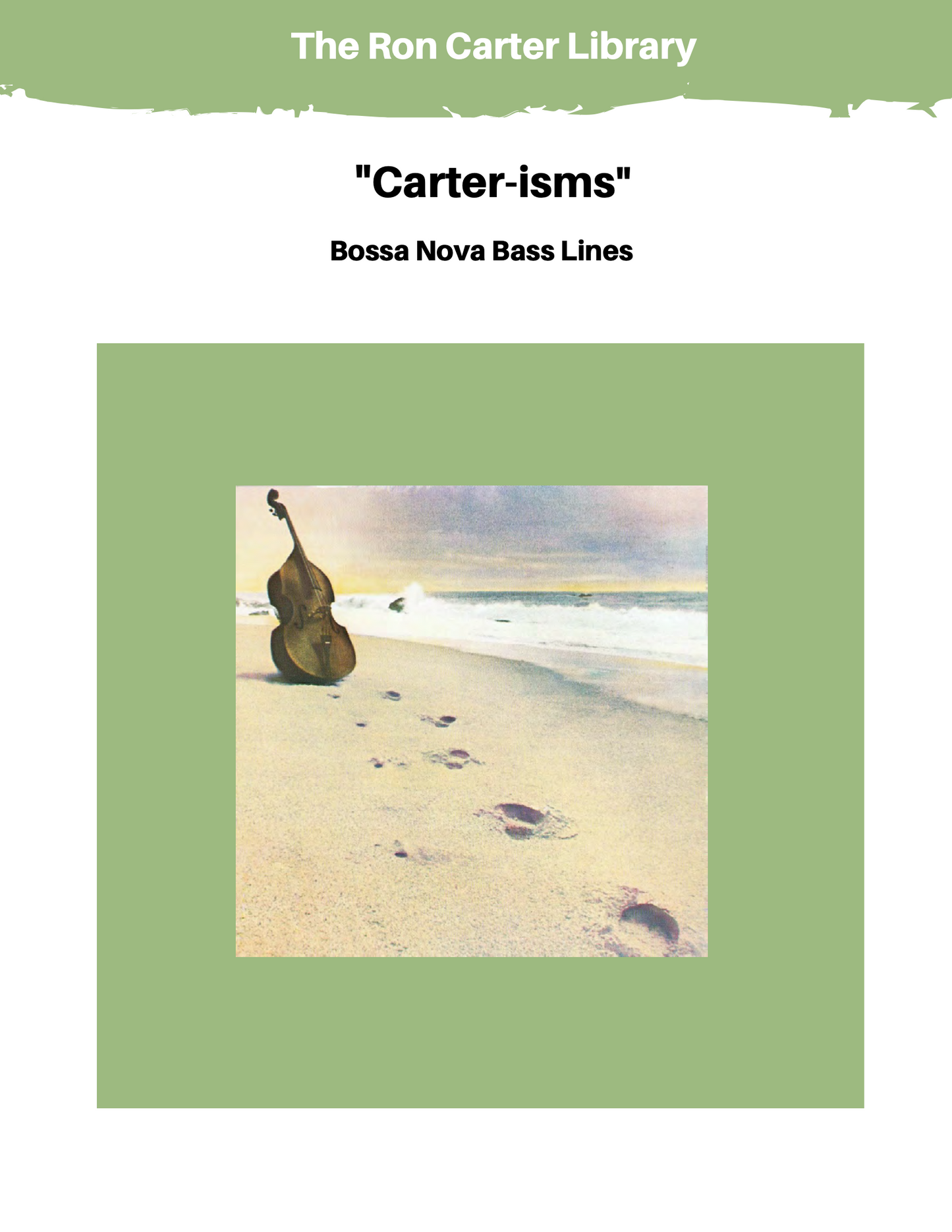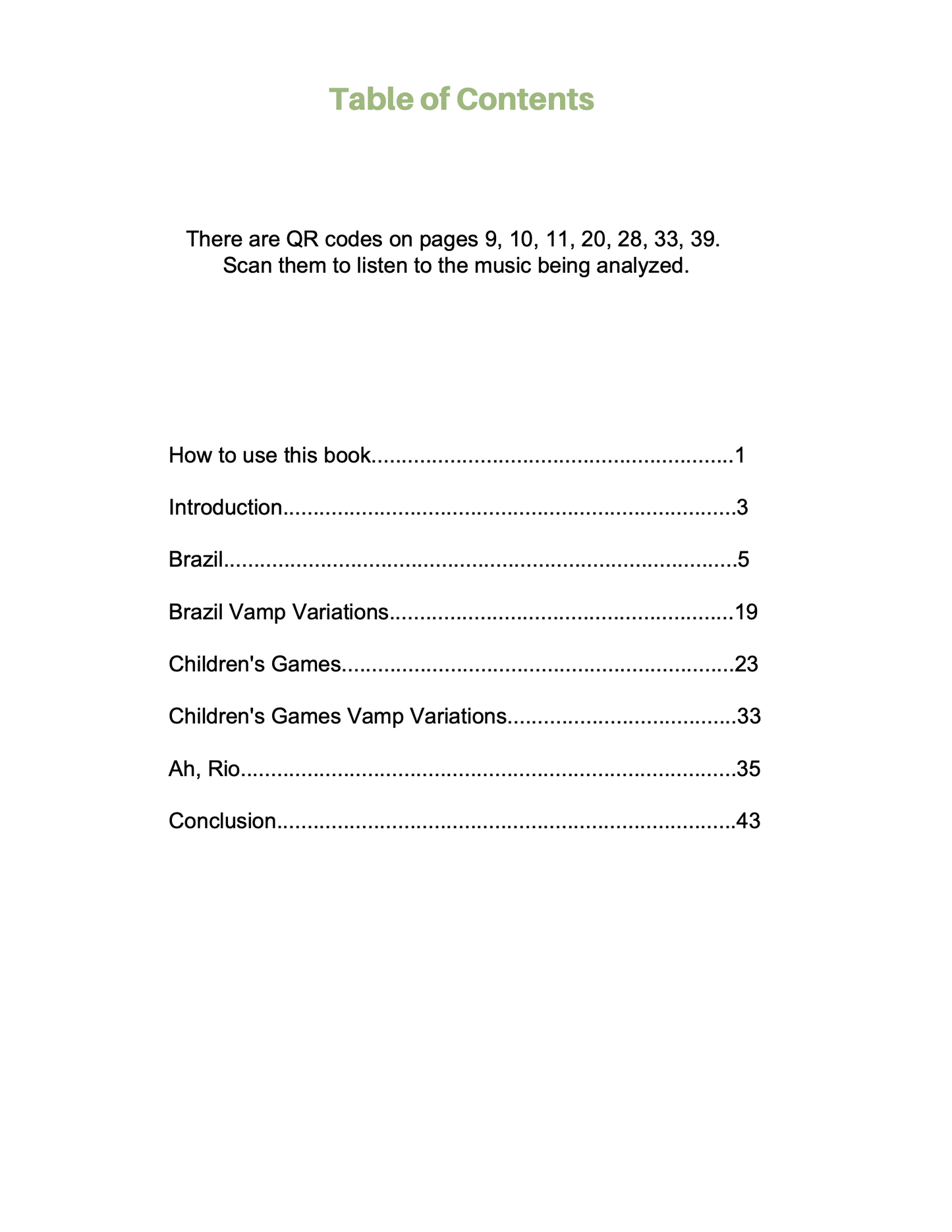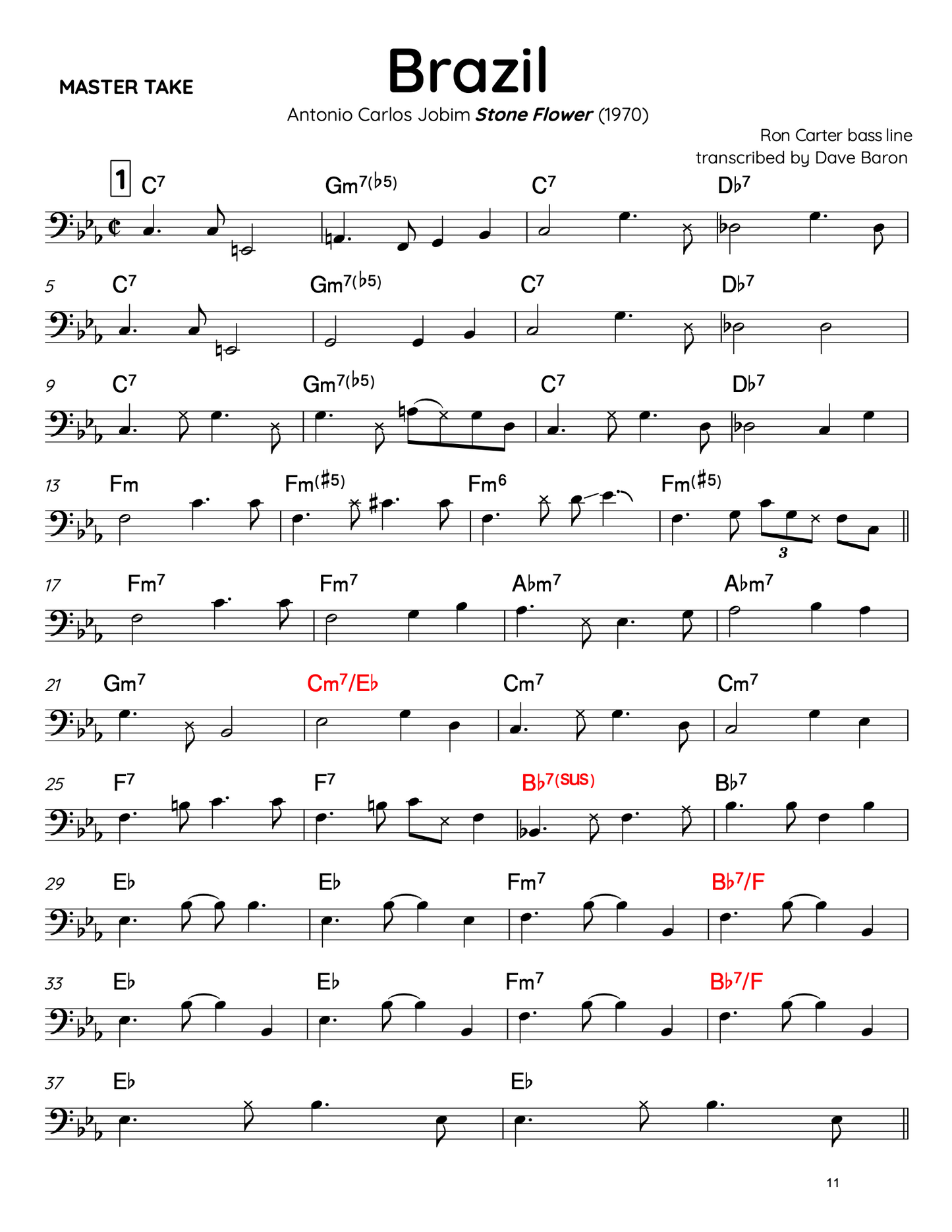Ron Carter
Ron Carter: Carter-isms | Bossa Nova Bass Lines
Ron Carter: Carter-isms | Bossa Nova Bass Lines
Couldn't load pickup availability
About Carter-isms
This book traces the development of bossa nova bass lines up to 1968. We will call this “Bossa/Rio.” The examples of this style are notated here by local Brazilian bass players. These bass lines are fundamentally Root-Fifth with a repeating rhythmic pattern outlining the chord changes.
The development of those original bass lines has been personalized by me starting in the year 1970. We will call this “Bossa/New York”.
Listen carefully to how my bass lines evolved using the same chord changes. These patterns, “carterisms,” show options that would otherwise not have been available.
Please note that my new note(s), which I am using to reharmonize a given measure of the piece, is marked in red.
The fun of these bass lines is they each have their own story, and that story affects everyone playing that tune – including you.
The e-book is 43 pages.
How to Use This Book
1. I will provide the lead sheet and QR codes, which lead to audio recordings of the tunes being discussed.
2. I will illustrate my use of Carter-isms with three tunes: Brazil, Children’s Games, and Ah, Rio (an original composition of mine).
3. In my book “Chartography,” I show what went over the bass lines. In this book, I show you what’s under them.
About Ron Carter
Ron Carter is among the most original, prolific, and influential bassists in jazz. He has recorded over 2200 albums and has a Guinness world record to prove it!
In Jazz: From 1963 to 1968, he was a member of the acclaimed Miles Davis Quintet. Over his 60-year career, he has recorded with so many of the jazz greats: Lena Horne, Bill Evans, B.B. King, Dexter Gordon, Wes Montgomery, Bobby Timmons, Eric Dolphy, Cannonball Adderley, and Jaki Byard, to name a few. He can be heard on many iconic jazz records of the '60s and '70 such as Speak No Evil, Maiden Voyage, Red Clay, Speak Like a Child, Nefertiti, and Miles Smiles, to name a few.
In other genres
After leaving the quintet, he embarked on a prolific 50-year freelance career that spanned vastly different music genres and continues to this day. He recorded with Roberta Flack, Billy Joel, Paul Simon, Bette Midler, and Aretha Franklin, appeared on the seminal hip-hop album The Low End Theory with a Tribe Called Quest, wrote and recorded pieces for string quartets and Bach chorales for 2-8 basses and accompanied Danny Simmons on a spoken word album.
As a leader
Carter continues to do worldwide tours with his various groups. The Golden Striker Carter Trio, The Foursight quartet, the Ron Carter Nonet, and Ron Carter’s Great Big Band. He has recorded multiple albums with his groups.
As an author
Carter shares his expertise in the series of books he authored, where he explains his creative process and teaches bassists of all levels to improve their skills and develop their own unique sound.
His books share a unique feature he pioneered, that of including QR codes in every book that lead to additional material, enriching the text and making each book that much more valuable.
He also penned his autobiography “Finding the Right Notes,” which is available in print and e-book and also as an audiobook read by the Maestro himself.
As a teacher
Carter has lectured, conducted, and performed at clinics and master classes, instructing jazz ensembles and teaching the business of music at numerous universities. He was Artistic Director of the Thelonious Monk Institute of Jazz Studies while it was located in Boston, and after 18 years on the faculty of the Music Department of The City College of New York, he is now a Distinguished Professor Emeritus. He also taught at the Juilliard School and at the Manhattan School of Music.
In film scoring
In addition to scoring and arranging music for many films, including some projects for the Public Broadcasting System, Carter composed music for A Gathering of Old Men, starring Lou Gosset Jr., The Passion of Beatrice, directed by Bertrand Tavernier, and Blind Faith, starring Courtney B. Vance.
Film appearances
In 2022 PBS premiered the full-length feature film documentary of Carter's Live and Legend "Finding the Right Notes. Many jazz documentaries feature the Maestro because of his indelible contribution to the genre, including Ken Burns' Jazz, “Birth of the Cool” about Miles Davis, "It Must Be Schwing," the story of the Blue Note, and many more. He also appeared as himself in HBO’s hit series “Treme” and was the bassist on soundtracks of Twin Peaks, Bird, and way too many others to mention.
Education
Carter earned a bachelor of music degree from the Eastman School in Rochester and a master's degree in double bass from the Manhattan School of Music in New York City.







